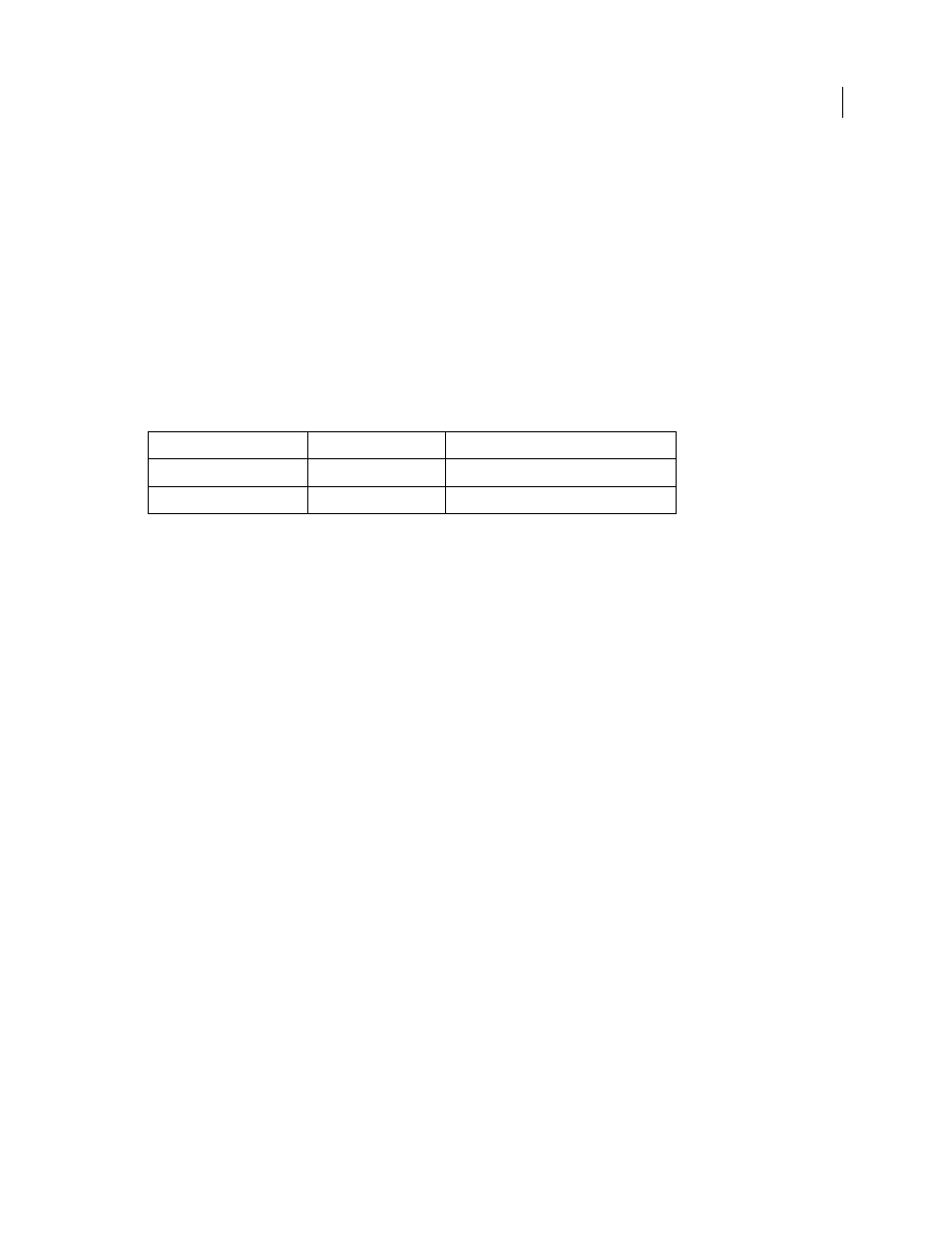Chapter 9: commands, How commands work, Commands – Adobe Extending Dreamweaver CS4 User Manual
Page 137

131
Chapter 9: Commands
Adobe Dreamweaver commands can perform almost any kind of edit to a user’s current document, other open
documents, or any HTML document on a local drive. Commands can insert, remove, or rearrange HTML tags and
attributes, comments, and text.
Commands are HTML files. The body section of a command file can contain an HTML form that accepts options for
the command (for example, how a table should be sorted and by which column). The head section of a command file
contains JavaScript functions that process form input from the body section and control what edits are made to the
user’s document.
The following table lists the files you use to create a command:
How commands work
When a user clicks a menu that contains a command, the following events occur:
1
Dreamweaver calls the
canAcceptCommand()
function to determine whether the menu item should be disabled. If
the
canAcceptCommand()
function returns a
false
value, the command is dimmed in the menu, and the
procedure stops. If the
canAcceptCommand()
function returns a
true
value, the procedure can continue.
2
The user selects a command from the menu.
3
Dreamweaver calls the
receiveArguments()
function, if defined, in the selected command file to let the command
process any arguments that pass from the menu item or from the
dreamweaver.runCommand()
function. For more
information on the
dreamweaver.runCommand()
function, see the Dreamweaver API Reference.
4
Dreamweaver calls the
commandButtons()
function, if defined, to determine which buttons appear on the right
side of the Options dialog box and what code should execute when the user clicks the buttons.
5
Dreamweaver scans the command file for a
form
tag. If a form exists, Dreamweaver calls the
windowDimensions()
function, which sizes the Options dialog box that contains the body elements of the file. If the
windowDimensions()
function is not defined, Dreamweaver automatically sizes the dialog box.
6
If the command file’s
body
tag contains an
onLoad
handler, Dreamweaver executes it (whether or not a dialog box
appears). If no dialog box appears, the remaining steps do not occur.
7
The user selects options for the command. Dreamweaver executes event handlers that are associated with the fields
as the user encounters them.
8
The user clicks one of the buttons that is defined by the
commandButtons()
function.
9
Dreamweaver executes the associated code. The dialog box remains visible until one of the scripts in the command
calls the
window.close()
function.
Path
File
Description
Configuration/Commands/
commandname.htm
Specifies the user interface.
Configuration/Commands/
commandname.js
Contains the functions to execute.
